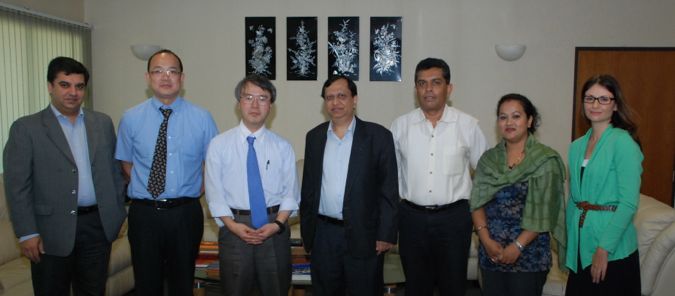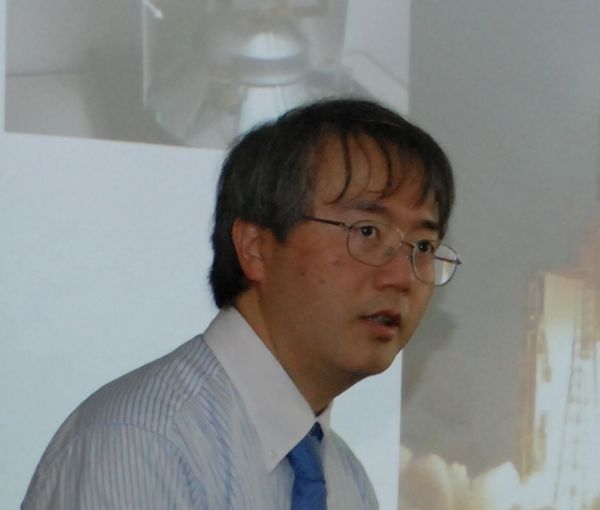Dr. Takahashi said that the super-constellation of micro satellites
could scan any location in the world within seven and a half minutes.
Such a consortium of satellites can be a cost-effective way to deal
with emergent situations like thunderstorms and forest fires.
Micro-satellites cost a few million Euros and the launch cost ranges
between 1-2 million. This makes the concept affordable, efficient,
rapid and flexible. Talks are already on with Indonesia and Vietnam for
participation in the Asian Micro-Satellite Consortium, Dr. Takahashi
revealed. He also offered that students from AIT could work at Hokkaido
University on the project.
Dr. Nitin Afzulpurkar, Dean, School of Engineering and Technology
(SET), AIT, expressed his admiration of the work done at Hokkaido
University, and stated that both universities can strengthen their
already existing collaboration. The meeting was also attending by Dr.
Lal Samarakoon, Director, Geoinformatics Center, AIT; Dr. Masahiko
Nagai, Associate Director, Geoinformatics Center; Mr. Ahmed Amjad Ali,
Head, External Relations and Communications Office (ERCO); Dr.
Gabrielle Groves, Program Coordinator, ERCO; and Ms. Sumana Shrestha,
Program Officer, ERCO.
More details about Department of Cosmosciences, University of Hokkaido
are available at this link: http://www.ep.sci.hokudai.ac.jp/~cosmo/index-e.htm


